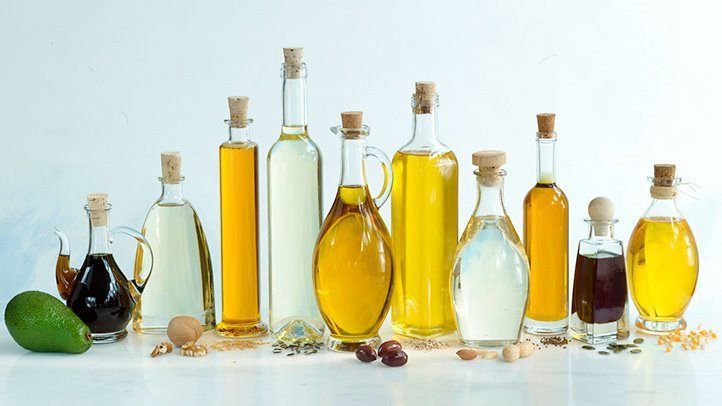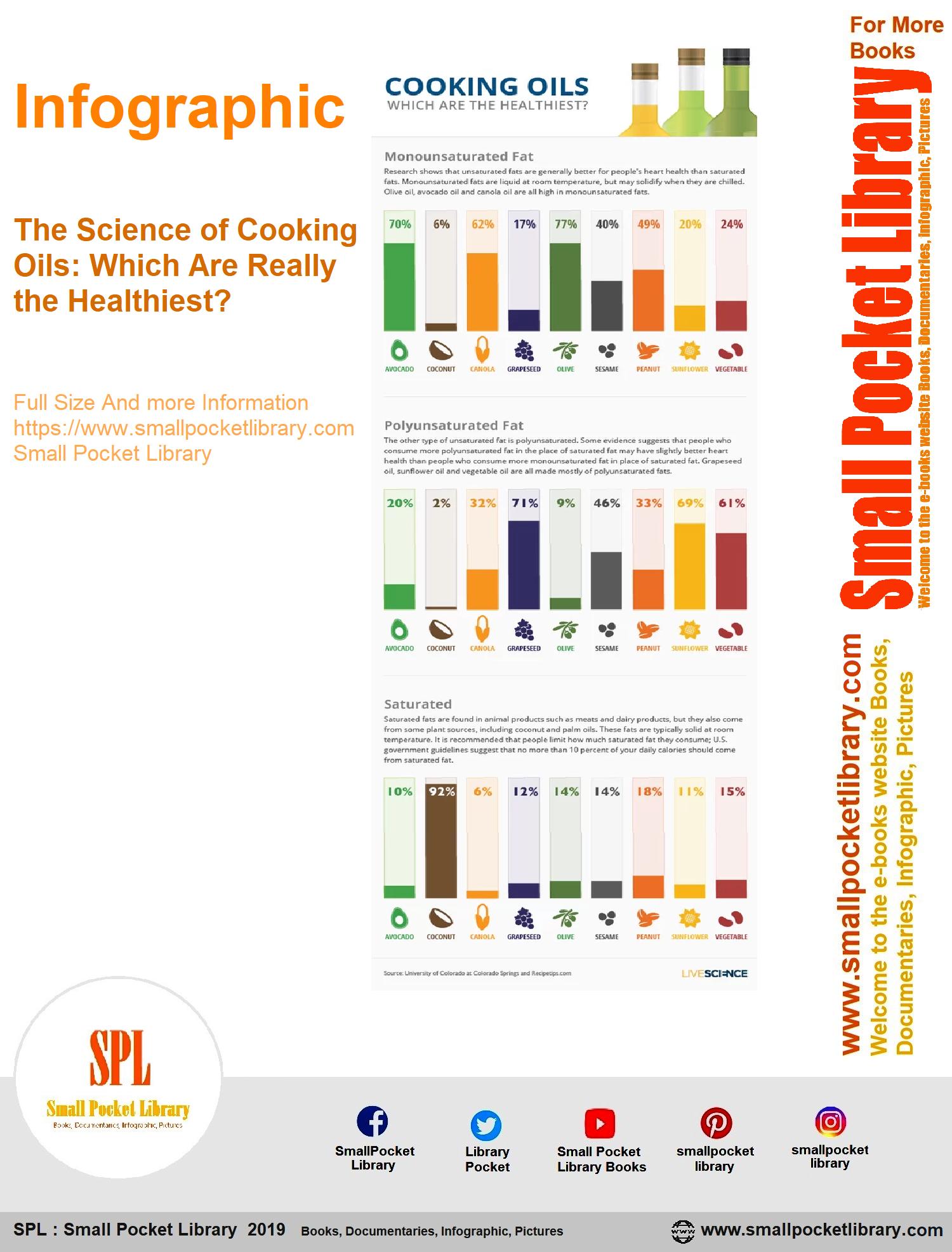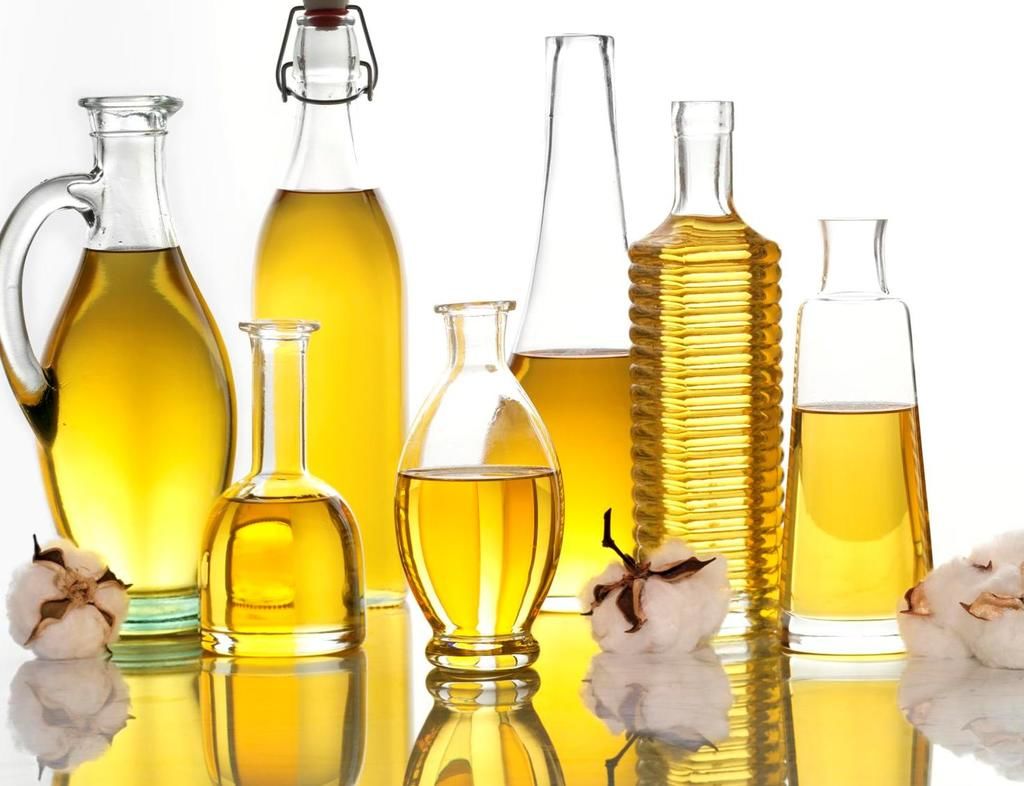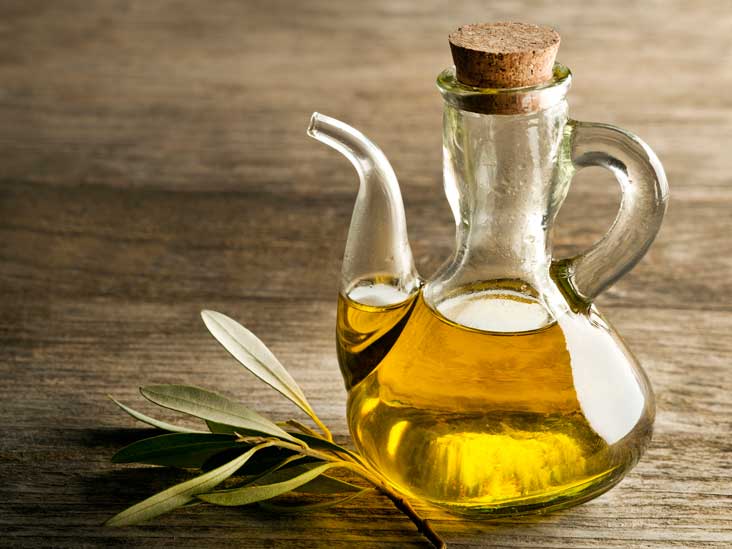There are many types of vegetable oils used for cooking in our time, and the many types make the consumer is confused about the choice of the right type and about the knowledge of the best body. The debate over the use of olive oil in cooking and debate over saturated fat also increased. "There have been many types of oils over the last 10 years, especially those with high concentrations of oleic acid," said Jo Ann Carson, professor of clinical nutrition at the Texas Southwestern Southwestern Medical Center in Dallas. "Some oils have recently been known as coconut oil , And other species were less popular among consumers as grape seed oil ».
"The choice of healthy body oils that have a positive effect on heart health is confusing to many," said Alice Lichtenstein, professor of nutrition science and policy and director of the Cardiovascular Nutrition Laboratory at the Nutrition Research Center of Tufts University in Boston. To be used frequently by consumers in addition to coconut oil ».
In addition, Liechtenstein was a member of the advisory board of the American Heart Association, which published a report on food fats and cardiovascular diseases, published in June entitled "Circulation". The committee reviewed the scientific publications to clarify and explain some beliefs related to dietary fat.
The Committee recommended reducing levels of "saturated fats" such as fats from meat, poultry, cheese, dairy products and tropical oils, such as coconut and palm oil, to reduce the risk of heart disease. Liechtenstein stressed that consumers should replace saturated fats « Unsaturated fats, "which include" polyunsaturated fats "and" monounsaturated fats ".
"All we have to do is encourage the use of healthy fats in the diet by replacing animal fats with vegetable fats," said Liechtenstein.
The polyunsaturated fats are found in fish, walnuts and flaxseeds, as well as in sunflower, safflower, soybeans and corn oil. Unaturated monounsaturated fats are found in other types of nuts, seeds, avocados, olives, canola and peanut oil. Studies have shown that replacing saturated fats by Non-saturated or unsaturated , Reduces the risk of heart disease somewhat more than replacing monounsaturated fats.
"In other words, polyunsaturated fats are better for people with heart health," she said. The Commission's analysis of four randomized trials, considered the "gold standard" of scientific evidence, showed that the replacement of polyunsaturated polyunsaturated fats resulted in a 29% lower risk of heart disease. This result is similar to the reduced risk of heart disease in statin Drugs that are anti - cholesterol.
The replacement of polyunsaturated polyunsaturated fat or monounsaturated monounsaturated fats is good for the heart because it reduces the levels of LDL cholesterol and blood fats called triglycerides, both of which are an important risk factor. Heart disease.
Choose the right oils:
So what's the report's findings on how to use cooking oils? "The most important thing is the use of cooking oils moderately," said Liechtenstein. The US government's dietary guidelines show that American food diets should include a small amount of oil daily to provide the body with essential fatty acids, because the body can not manufacture these acids Should be obtained from food, and there are two types of fatty acids, both of the polyunsaturated fatty acids are: (linoleic acid - linoleic acid) and (alpha-linolenic acid).
It is worth mentioning that all cooking oils consist of three different types of fatty acids: monounsaturated monounsaturated fats, polyunsaturated fats and saturated fats, and the classification of each oil based on any type of fatty acids is the most prominent, for example, olive oils and canola Mostly monounsaturated monounsaturated fats, while corn and soybean oils contain mainly polyunsaturated fats, while coconut oil is among the saturated fats.
To facilitate the process of selecting the best oils for health, you will find here a clear outline and detailed information of some of the most common oils in use. Some oils have had a lot of research showing the usefulness of these oils to health, while some other oils have not had the same opportunity and insufficient information About their impact on heart health.
Avocado oil
Avocado oil is high in monounsaturated fats by 70%, which is the most fat containing the highest levels of monounsaturated monounsaturated fats in cooking oils. In second place after olive oil, as well as olive oil, avocado oil is also low in polyunsaturated fat, Its share in this oil is 10%.
Avocado oil, compared to other vegetable oils, contains a high content of saturated fat (20%), but is much lower than the percentage of saturated fats in butter or tropical oils, such as coconut oil or palm oil.
"Avocado oil can be more expensive than other oils, and it is also hard to find, and it is always available and has a mild flavor resembling avocado flavor," said Liechtenstein. "This oil can withstand high cooking temperatures, making it suitable for frying, roasting, roasting or Use it in salad sauce ».
Canola oil
"Canola oil also contains a high proportion of monounsaturated monounsaturated fats, and although it contains a higher proportion of unsaturated polyunsaturated fat by 62%, canola oil is also a good source of polyunsaturated fats," said Carson. Oil is 32%.
Canola oil also contains the lowest level of saturated fat among cooking oils, which is 7% in this oil, and it is a few oils with a vegetable source containing omega-3 fats, a useful type of polyunsaturated fat.
A study in Nutrition Reviews said that when people replace canola oil with saturated fat in their diets, it can help lower total cholesterol levels and harmful cholesterol levels, as this reduces the risk of heart disease in people. The source of this oil is a plant called Rapeseed, which is widely grown in Canada.
"Canola oil is a versatile, non-expensive cooking oil that can be used in different ways of bread, roast, frying and salad sauce," added Carson.
Coconut oil - Coconut oil
It comes from the fruits of the coconut palm tree. Coconut oil has been promoted as a better alternative to butter, as it is a white steel at room temperature that is similar to butter and less liquid than other oils.
Many consumers think that using coconut oil is a healthy option, especially vegetarians who do not use animal fat. In a New York Times poll published in 2016, 72 percent of consumers said coconut oil was "healthy food" compared with 37 percent % Of nutritionists who voted the opposite.
Nutrition experts have pointed out that coconut oil has a high saturated fat content of 92% and recommended that it be used a little. Coconut oil contains more saturated fat than butter or pig fat.
Marketers' ads included that coconut oil was better for the heart than butter, but after evaluating all the available studies, a study in 2016 published in Nutrition Reviews found that people who consumed coconut oil had a higher total cholesterol and LDL than those consuming non-fat Saturated, yet these levels were slightly lower than those using butter.
The researchers conclude that there is little evidence that coconut oil has any benefit to heart health, compared with other saturated fats such as butter or palm oil.
In a report published in 2017 by the American Heart Association, he never recommended using coconut oil. The committee showed that coconut oil "increases the harmful cholesterol, a known cause of heart disease."
"Coconut oil has no benefit to heart health," said Liechtenstein, who worked for the AHA. "The idea that it is healthy food is scientifically incorrect." "There is no reason to use coconut oil instead of unsaturated oils, and there is potential damage to its high content of saturated fat," she said.
Grape seed oil - Grapeseed oil
This versatile oil is extracted from the extracted grape seeds. According to the Academy of Nutrition and Diet, grape seed oil preferred by chefs and food lovers is a light flavor and can be used with other strong flavors. It is a good oil for all cooking uses. It can be used for frying and roasting, Power sauce, grape seed oil must be stored in the refrigerator to prevent it from spoiling.
"Grape seed oil has a high proportion of unsaturated fat, containing 71 percent polyunsaturated fat, 17 percent unsaturated monounsaturated fat, and 12 percent saturated fat," said Liechtenstein. "The ratio of fatty acids is similar to that of soybean oil , Containing 61% polyunsaturated fat, 24% monounsaturated fat and 15% saturated fat.
"We really do not know much about the effects of grape seed oil on human health and there are very few studies that have shown the benefits of these oils for heart health," said a study in 2016 in Nutrition and Metabolic Insights.
Extra virgin olive oil and pure olive oil
Because of its importance in the diet of the peoples surrounding the Mediterranean Sea, olive oil is the most popular among the cooking oils. Extra virgin olive oil is extracted from olive seeds, which is an oil with a good flavor and aroma. It is considered a refined oil, usually more expensive than other types of olive oil, and contains most antioxidants. Pure olive oil is refined, lighter in color and milder in flavor than virgin olive oil.
Olive oils typically contain the highest proportion of monounsaturated fats in cooking oils, and olive oil is rich in antioxidants called polyphenols, which may be beneficial for heart health.
In a study published in 2013 in the New England Journal of Medicine, a study of about 7,500 men and women at risk of heart disease found that people who advised an average food intake supplemented with virgin olive oil or nuts had a low rate of seizures Heart attack, stroke and death, compared to people who have just followed a low-fat diet in general.
"There is no clear difference between virgin olive oil and pure olive oil in terms of their effect on heart health," Carson told Living Science magazine. "There are better options than using virgin olive oil for cooking at high temperatures such as frying, because it can not withstand high temperatures and will burn and produce a lot of smoke, but refined or pure olive oil is more suitable for cooking at high temperatures than oil. Virgin olive ".
Because virgin olive oil is more flavorful and palatable than other olive oil, it is a good choice to taste with vegetables, bread, or salad sauce and pickles.
Peanut oil
Peanut oil, among other cooking oils, contains the highest proportion of unsaturated monounsaturated fats (49%) and contains a similar proportion of canola oil of polyunsaturated fat (33%).
Saturated fat is 18% higher than other vegetable oils, but not so much more harmful to heart health as it is still lower than saturated fat in coconut oil or palm oil, according to Liechtenstein.
Nutrition experts have confirmed that peanut oil has a good flavor and is pale in color and can withstand high temperatures, and is a good choice to cook Asian-inspired meals and fried meals.
Sesame oil
"Sesame oil is often used in Asian and Indian cooking, containing 46 percent unsaturated polyunsaturated fats, 40 percent unsaturated monounsaturated fats, and 14 percent saturated fats," Liechtenstein said. "This oil is not usually used as cooking oil, it is used more to add flavor to food," she said.
Sesame oil gives a delicious flavor to dishes, especially roasted sesame oil, which is darker and smoother. Sesame oil must be cooled after opening it.
Sunflower oil - Sunflower oil
Sunflower oil is characterized by light color and natural flavor. The concentration of polyunsaturated fats is 69%. It also contains 20% unsaturated monounsaturated fats and a low saturated fat content of 11%, making it a good health option. Its advantages are also used for all cooking purposes and have excellent bearing capacity for high cooking temperatures.
When you shop, you may find high alolic products from sunflower oil or canola oil on the shelves in the shops, or you may find a note that contains a high concentration of oleic in the food list listed behind the product.
The inclusion of these oils in a high concentration of oleic means a higher concentration of unsaturated monounsaturated fats, and the presence of high oleic acid in sunflower oil will make it more acidic than monounsaturated monounsaturated fats, similar to olive oil than conventional sunflower oil.
According to nutritionists, the high concentration of oleic in oils makes them hydrogenated fats with a long shelf life and therefore demand on the market more than other oils containing polyunsaturated fats.
Results in Nutrition in 2013 published four studies comparing the effect of a diet rich in traditional sunflower oil, which contains a high proportion of polyunsaturated fats, and the effect of canola oil, which contains monounsaturated fats on heart health, Similar effects, as the percentage of total cholesterol levels and harmful cholesterol in the body decreased.
Vegetable oil - Vegetable oil
"Historically, vegetable oil was soybean oil, but in our time this term can also be used for a combination of different oils," Carson said of the term vegetable oils.
Soybean oil primarily contains polyunsaturated fats of 61%, 24% monounsaturated fats and 15% saturated fats. Soybean oil contains omega-3 fats, which are healthy fats The heart is found in salmon and sardines, but less common in plant food sources.
"There is no flavor for vegetable oils made from soybeans, and they are used for various cooking purposes such as roasting, roasting or even making salad sauce," Carson said.
Source : Live Science












0 Comments